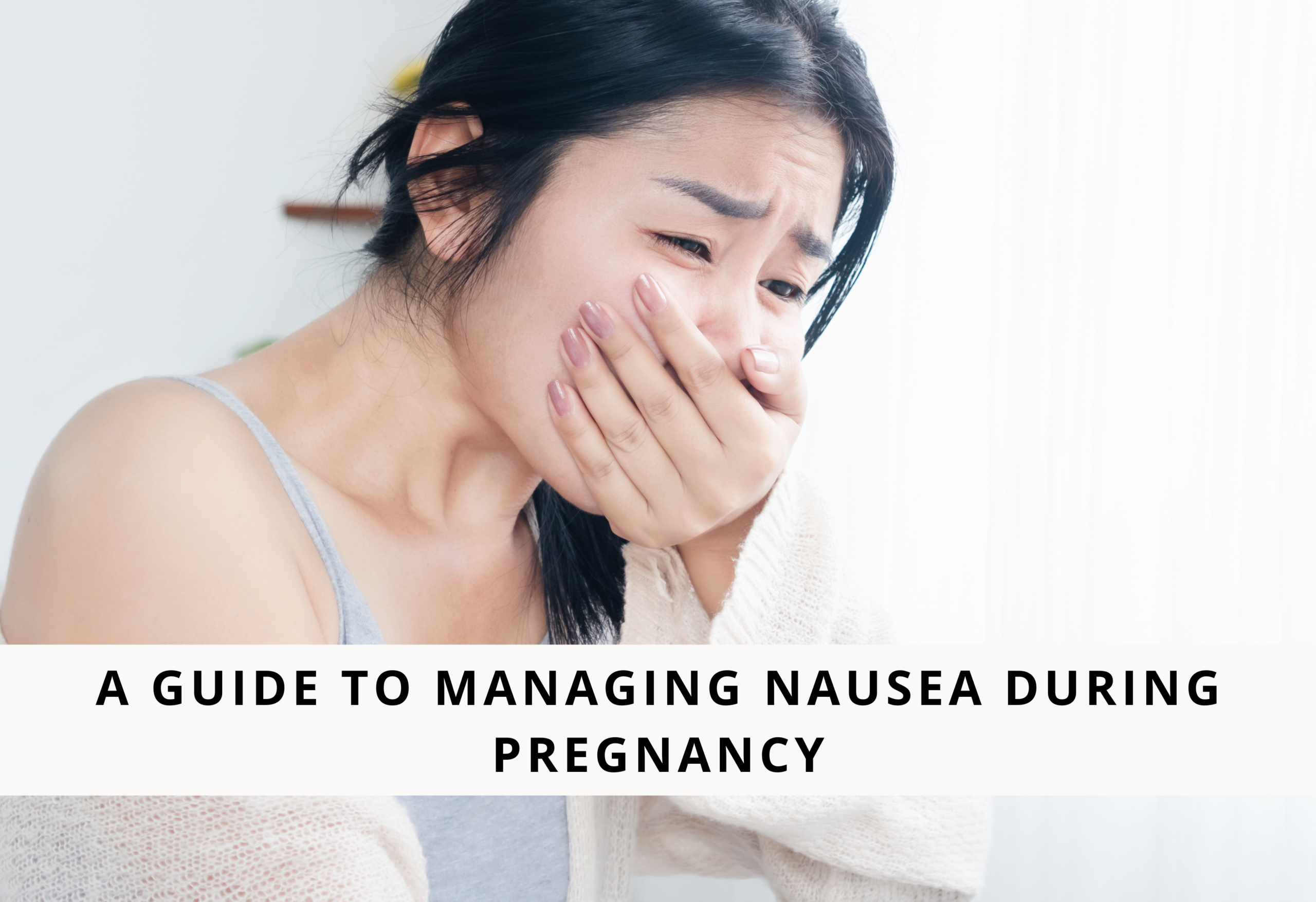Nausea during pregnancy, commonly referred to as “morning sickness,” is a frequent companion for many expectant mothers, affecting 50-80% of pregnancies. This often uncomfortable condition can vary greatly in its severity and timing, challenging the notion that it only occurs in the morning. Despite its prevalence, the good news is that for most individuals, nausea is manageable with a combination of lifestyle adjustments, dietary changes, and, in some cases, medical interventions.
The causes of pregnancy-related nausea are multifaceted, involving hormonal changes such as increased levels of human chorionic gonadotropin (hCG) and estrogen, as well as physiological adjustments like slowed gastric emptying. These changes, while essential for a healthy pregnancy, unfortunately, set the stage for nausea and vomiting.
Fortunately, this symptom is typically time-limited, peaking around the first trimester and often subsiding as the pregnancy progresses, with the majority of individuals finding relief by the 20th week. Understanding that nausea is not only a common part of pregnancy but also one that can be mitigated with proper care, can offer reassurance and a sense of control to those navigating this challenging aspect of pregnancy.
Understanding Nausea during Pregnancy
Morning sickness, or nausea and vomiting of pregnancy (NVP), affects 50-80% of pregnant individuals, with symptoms ranging from mild discomfort to significant impact on daily life. This common early pregnancy symptom, peaking around 9-11 weeks and often subsiding by the second trimester, is linked to hormonal changes, including increased levels of human chorionic gonadotropin and estrogen, as well as factors like Helicobacter pylori infection and personal or family history of NVP.
Coping With NVP
While nausea and vomiting can be a challenging part of early pregnancy, understanding that it’s a common, often time-limited symptom can provide some comfort. Embracing self-care strategies, from dietary adjustments to ginger supplementation and acupressure, can offer relief. Remember, it’s crucial to stay in communication with your healthcare provider about your symptoms and treatment options, ensuring both your health and your baby’s well-being throughout your pregnancy journey.
How to Alleviate Nausea during pregnancy
Lifestyle and Dietary Adjustments:
- Prenatal Vitamins: Starting a prenatal vitamin at conception may reduce the severity of NVP.
- Diet: Small, frequent meals can help. Avoiding spicy, greasy foods and focusing on bland, easy-to-digest items may provide relief. Eat a small snack before getting out of bed in the morning to help alleviate nausea during pregnancy.
- Hydration: Small sips of water throughout the day can prevent dehydration.
- Ginger: Ginger tea or ginger candies can help to reduce nausea during pregnancy for some, without adverse effects.
- Acupressure: Applying pressure to the P6 point on the wrist may reduce symptoms.
- Mint or Grapefruit Essential Oils: A super helpful game changer for me when I was pregnancy and feeling nauseous was carrying a small bottle of peppermint or grapefruit oil with me to smell when I took deep breaths. You can also try using an alcohol swab for this! Learn more ways to use Essential Oils Here.
When to Escalate Treatment: If lifestyle and over-the-counter (OTC) remedies don’t provide sufficient relief, prescription medications like Doxylamine succinate/pyridoxine may be considered. This combination has been deemed safe and effective for managing NVP, with somnolence and drowsiness as potential side effects. Talk to your midwife or care provider if you are continuing to battle NVP.
When To Call The Midwife
Immediate medical attention is necessary if you experience:
- Signs of Dehydration: Such as dark urine, dizziness, or fainting.
- Inability to Keep Food Down: For more than 24 hours, indicating the need for possible intravenous (IV) rehydration and hospitalization.
- Severe and Unrelenting NVP: Which might require further evaluation for conditions like hyperemesis gravidarum.
FAQs About Nausea During Pregnancy
- When does nausea typically start during pregnancy, and how long will it last?
Nausea usually begins around the sixth week of pregnancy and peaks between the 9th and 11th weeks. For most individuals, it tends to subside by the 12th to 14th weeks and is resolved by the 20th week. However, the duration and severity can vary significantly from one person to another. - Is it normal to experience nausea all day, not just in the morning?
Yes, despite being commonly referred to as “morning sickness,” nausea during pregnancy can occur at any time of the day or night. The intensity and timing of nausea can vary widely among pregnant individuals. - Can nausea during pregnancy harm my baby?
Nausea and vomiting, while uncomfortable for you, are not usually harmful to your baby. In fact, studies have shown that individuals who experience nausea and vomiting during pregnancy have lower rates of miscarriage and other adverse outcomes. However, severe nausea and vomiting that lead to dehydration or significant weight loss require medical attention. - What are some effective ways to manage nausea during pregnancy?
Several strategies can help manage nausea:
- Eating small, frequent meals to avoid an empty stomach.
- Keeping simple snacks like crackers by your bed to eat before getting up.
- Drinking fluids between meals rather than with them to avoid stomach distension.
- Trying ginger in the form of tea, candies, or supplements, as it has been shown to reduce nausea for some individuals.
- Wearing acupressure wristbands that apply pressure to specific points believed to reduce nausea.
Additional Resources about Nausea during Pregnancy
- Morning Sickness from The Cleveland Clinic
- Vomiting and morning sickness from The UK National Health Service
- Morning Sickness: Nausea and Vomiting of Pregnancy from ACOG





